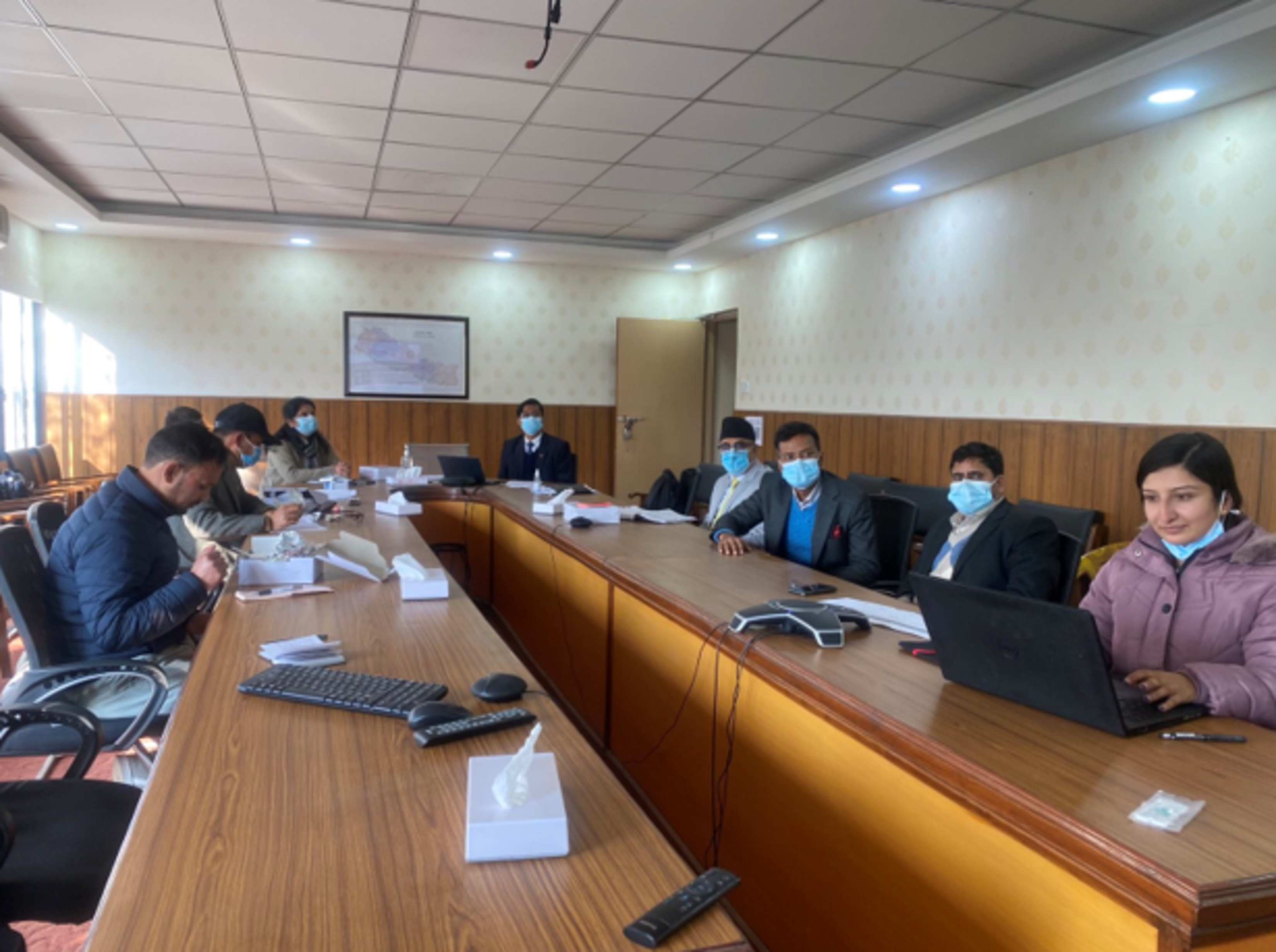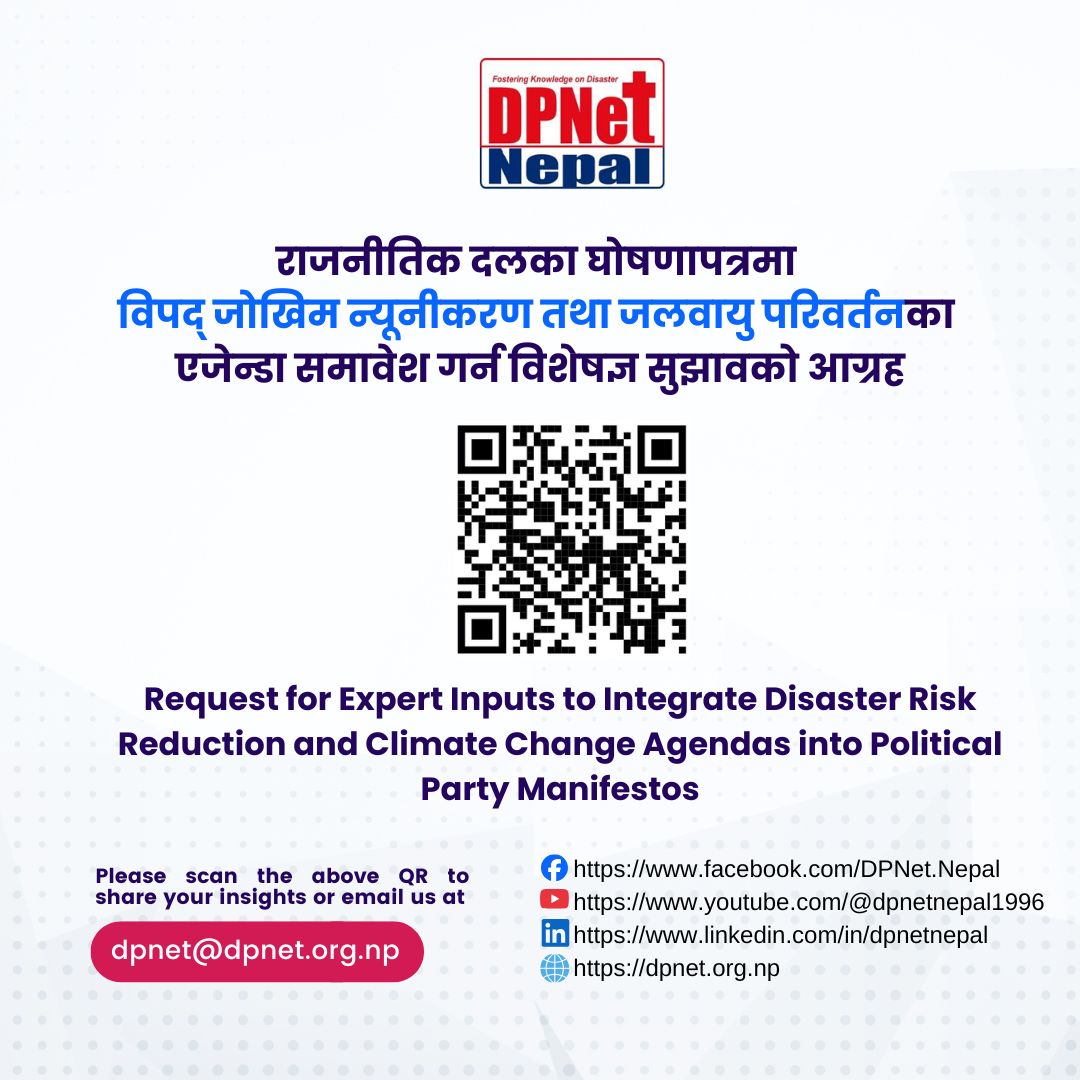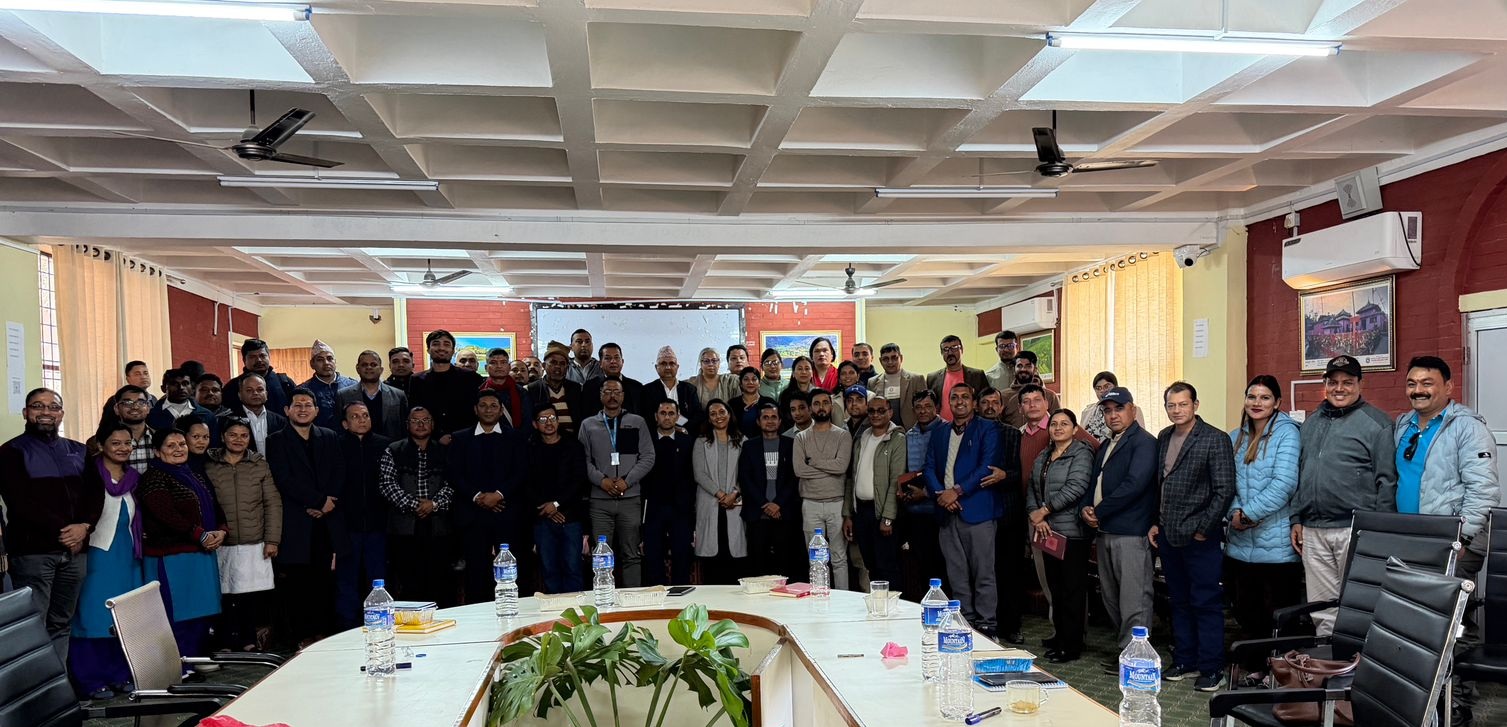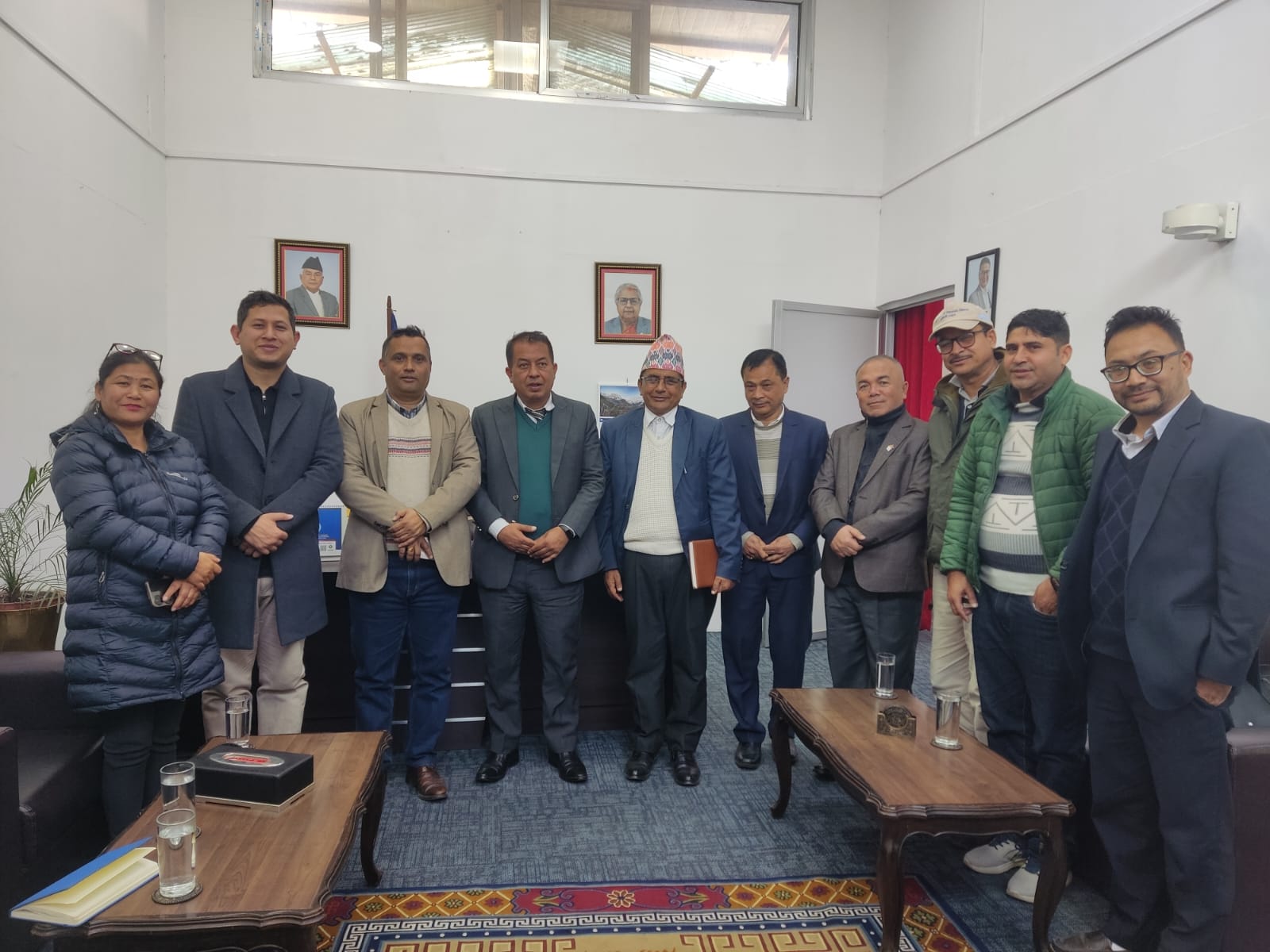Subjective Committee Discussion Program (Academia and Research Based Organization) under the National Platform for Disaster Risk Reduction
Jan 23, 2022

The Subjective Committee Discussion Program (Academia and Research Based Organization) under the National Platform for Disaster Risk Reduction was organized by DPNet in collaboration with National Disaster Risk Reduction and Management Authority (NDRRMA) on NDRRMA hall on 13th Jan, 2022. Mr. Kailash Rijal, General Secretary of DPNet gave welcomed everyone and highlighted the objective of the program.
Major Highlights
Major Highlights
- Dr. Dijan Bhattarai, Under Secretary of NDRRMA shared the status of NDRRMA, its challenges and way forward. He explained about the NPDRR Guideline and its implementation at all levels. He further clarified about the working area of NDRRMA and shared the importance of coordination and collaboration with different stakeholders. He shared about the 9 thematic groups such as NGO, INGO, Media, Academia/ Research based organization, UN, Disaster Affected community and Private sector. He shared about the Nepal Disaster Resilience Framework 2030 draft as well. It is important to address the proper research paper and put it in a bipad portal as well. He highlighted the priority areas of NDRRM such as understanding disaster and climate change risk, strengthening disaster risk governance at Federal, Provincial and Local Levels, increased public investment in DRR resilience, enhancing disaster preparedness for effective response, research- training and capacity building, multi- hazard early warning system and disaster risk financing. He shared the vulnerability map of people and households and said that vulnerability/hazard mapping systems are very important. He highlighted the importance of Academia and Research based organization in DRR&M. Academia and research based organizations can contribute in research, case studies, report, and identification and hire the disaster experts for DRR&M. It is important to make a roster of experts and work accordingly. NDRRMA also should assist the authorities in building a system of accepting people as disaster experts.
- Dr. Raju Thapa, Vice Chairperson of the DPNet, highlighted the importance of the academia group to achieve the first priority area of Sendai Framework, i.e. understanding disaster risk. He requested an academia group to come up with ground breaking research that blends indigenous knowledge and evidence based science to mitigate the loss of life and property at the community level.
Major Discussions
- There are different experts in different kinds of disaster as well, so, it was discussed about involving the experts and students in disaster management information systems.
- There should be hazard prioritization and proper risk assessment.
- We should collaborate with DHM and help to build more stations as well. (for more and authentic data)
The research, case studies and data management should be addressed properly.
- There should be clear structural adjustment and proper reporting system in intuitions.
- There should be immediate action in a disaster and should be proper resilience in disaster.
- All 11 universities of Nepal should mainstream disaster management in their respective subject area.
- Roster of DRR academia should be the first priority to engage professionals effectively and efficiently.
Dr. Dijan Bhattarai, gave vote of thanks to all participants and closed the program.











